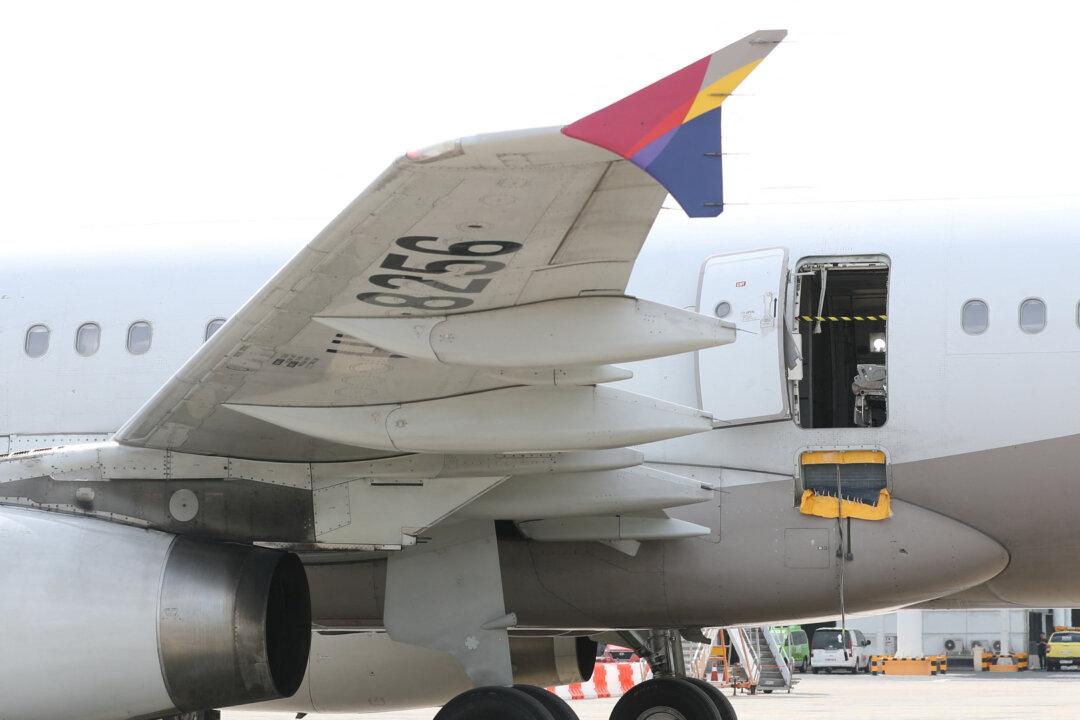SEOUL—South Korean police on Friday detained a man who opened a door of an Asiana Airlines plane minutes before it was due to land in the city of Daegu, causing panic among the passengers, officials said.
The Airbus A321-200 plane landed safely at around 12:40 p.m. (0340 GMT). It had set off from the holiday island of Jeju an hour earlier, the airport’s flight schedule showed.





